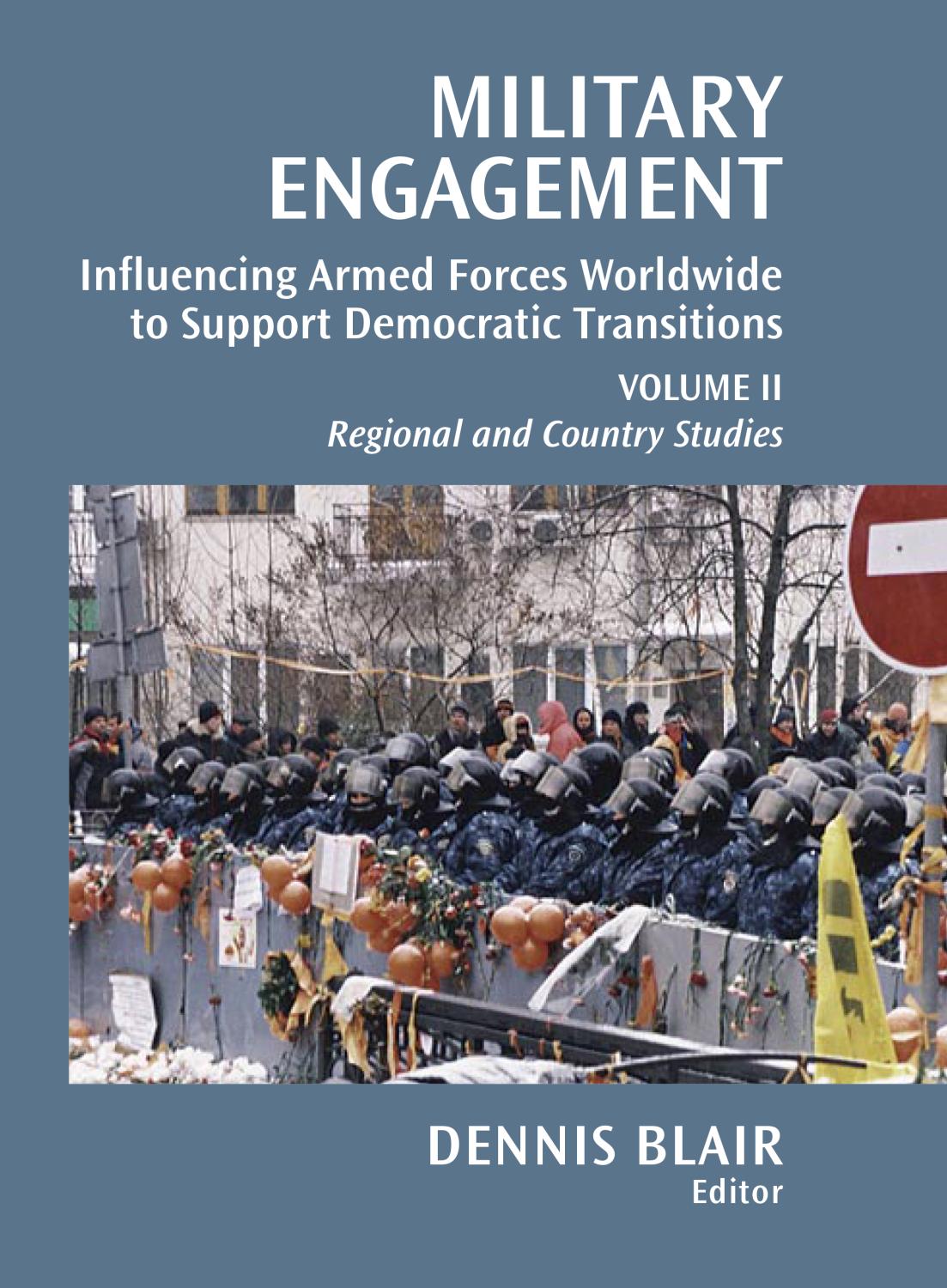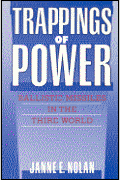


Book
The response of an autocratic nation’s armed forces is crucial to the outcome of democratization movements throughout the world. But what exact internal conditions have led to real-world democratic transitions,...
The response of an autocratic nation’s armed forces is crucial to the outcome of democratization movements throughout the world.
This second volume of Military Engagement relates stories of how democratic civil-military relations developed in five world regions and 14 individual countries. Given the unique circumstances of each region and country this collection provides a valuable lens to begin to understand the complexity of shifting a country’s armed forces from supporting an authoritarian regime to serving an elected democratic government.
Abridged Excerpt from Chapter 18: The Role of the Military in Egyptian Politics
The Egyptian army played a major role in the history of Egypt and has always held far more political and economic power than in most countries. Its role in running Egyptian politics and in business far exceeded its role in defending the country, and its political and business involvement came at the expense of its military efficiency. The term democracy has not been and is not now familiar to Egyptian government and political systems.
The support of the Egyptian public for the 1952 revolution carried out by the Free Officers Movement demonstrated the high level of resentment that most Egyptians had for the monarchy and the British presence. After this revolution, [Gamal Abdel] Nasser dissolved existing political parties and became the uncontested ruler of Egypt. In turn, the Egyptian army became the ruling party. Army officers held ministerial jobs and other high-ranking posts in the government.
The result was that the Egyptian army’s military spirit and its readiness to defend the country were greatly compromised. The army’s performance in the war of the Suez and in the Yemeni civil war was poor. Ultimately the Egyptian army was humiliated and defeated in the Six-Day War of 1967.
Under Nasser, security and intelligence agencies controlled the everyday life of Egyptians. No shred of democratic life existed. These agencies were under the control and protection of the army.
Following the military revolution of 1952, the regime’s ban on political parties left a large void in Egyptian political life. However, the government did not apply the same prohibitions to the activities of religious institutes and mosques. Mosques served not only as a place for prayer but also as a place for meetings and thought sharing. This enabled the Muslim Brotherhood to attract members, while nonreligious parties lacked similar means to do so. Frequently, the leaders of the Muslim Brotherhood verbally attacked Mubarak and government policies. However, they kept their distance from the army and avoided instigating confrontations. There seems to have been an undeclared truce between the army and the Muslim Brotherhood.
Following the peace treaty with Israel, in reality the Egyptian armed forces faced no external threat, but there was disagreement between the Egyptian armed forces and their American military partners on the fundamental question of external threats to Egypt. Many Egyptians felt that Israel was still a threat, but the United States, as a matter of policy, did not agree. Gradually, the Egyptian public felt that the army was losing its identity and goals. Instead of acting as the protector of Egypt, it had become the guardian of its own interests, the political system, and Mubarak. After the reelection of Mubarak in 2005, many in the military and political circles of Egypt expected him to name a former military officer as vice president. The expectation for a successor grew with signs of Mubarak’s ill health. This issue was never brought up publicly or in meetings of army officials, but unease and doubts grew among some officers. Mubarak turned a deaf ear to the murmurs, creating tension between himself and the army. This tension allowed many opposition groups, including the Muslim Brotherhood, to increase their criticism of Mubarak’s rule. [end excerpt]
This is the second volume of a two-volume set edited under the leadership of Admiral Dennis Blair, the Council for a Community of Democracies has developed a project to inform, guide, and strengthen democratic transitions
Learn more about Military Engagement (Volume One: Overview) »
You can also purchase the two volumes of Military Engagement as a set, for a discounted price.
Learn more about the set »
About the Editors

Four-star Admiral, Dennis C. Blair served as the U.S. director of national intelligence 2009-2010. A Rhodes Scholar, Blair is a thirty-four-year Navy veteran, retiring in 2002 as the commander in chief, U.S. Pacific Command.
From 2003-2007, Blair was president of the Institute for Defense Analyses, a non-profit corporation that manages federally funded national security research and development centers.
Juan Emilio Cheyre, while chief of staff of the Chilean army, took the final steps to bring his service out of the Pinochet era. Matthew Rhodes is a professor at the Marshall Center in Germany, an institution at the center of military-military relations among countries around the world. Istvan Gyarmati was deputy defense minister of Hungary during the Hungarian armed forces’ transition from its Warsaw Pact organization to meet NATO standards. Muthiah Alagappa, a general in the Malaysian Army, has become the foremost scholar of Asian civil-military relations subsequent to his retirement. Tannous Mouawad served as Lebanon’s military attaché to the United States and the chief of Lebanon’s military intelligence service. Martin Rupiya was an officer in the Zimbabwean National Army and now heads a security affairs think tank in South Africa.
Related Books

Peter W. Singer
September 1, 2004

Robert I. Rotberg
July 9, 2010

Janne E. Nolan
February 1, 1991
Authors
Edited by
Dennis Blair served as the U.S. director of national intelligence 2009–10. A Rhodes Scholar, Blair spent a career in the U.S. Navy, retiring in 2002 as the commander in chief, U.S. Pacific Command.